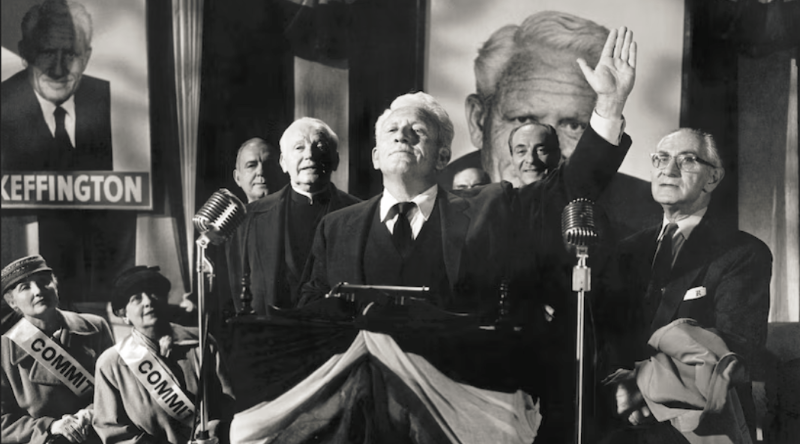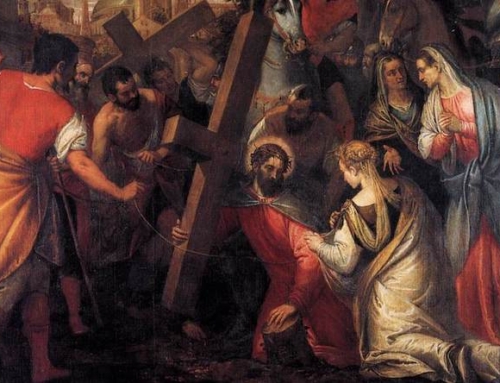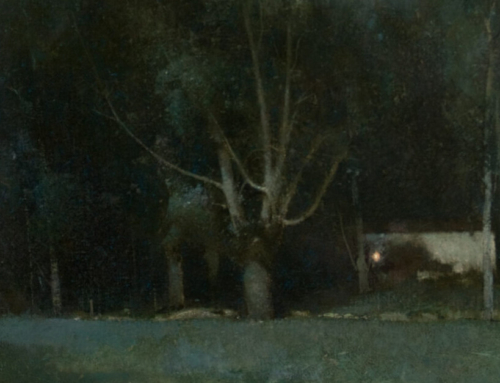This is part of a series on American Catholic authors. Read the series introduction here.
The world was never the same after 1968. It was a tumultuous year marked by global civil unrest, including protests in the U.S. spurred by racial tensions and opposition to the Vietnam War. Among its most memorable and tragic events, of course, were the assassinations of Martin Luther King, Jr. and Robert F. Kennedy. However, that same year witnessed the loss of another great American, little known today—the journalist and novelist Edwin O’Connor, who died at the young age of 49.
It is somewhat fitting that O’Connor died when he did, because he was so unambiguously a product of the era which 1968 pronounced dead. His fiction, likewise, is yoked to that peculiar epoch that followed World War II. O’Connor’s most noteworthy achievements are three of his novels: The Last Hurrah (1956), The Edge of Sadness (1961), and All in the Family (1966). These books offer a glimpse, through O’Connor’s eyes, into the years that immediately preceded the changes in society, culture, and religion which 1968 brought.
O’Connor was a descendant of Irish immigrants who came to America in the mid-nineteenth century. He grew up in Woonsocket, Rhode Island, and then studied English at the University of Notre Dame. Especially at Notre Dame, O’Connor was formed by a milieu that was categorically Irish and thoroughly Catholic.
O’Connor saw himself as a chronicler of the Irish American experience. He had no interest, however, in what he considered an artificial, forced Irishry. He rejected showy celebrations of St. Patrick’s Day, for instance, and declined membership in local Irish organizations. O’Connor wrote, rather, from his own experience, especially of hardworking Irish Americans who became influential by climbing the political and social ladders. Moreover, he saw that Irish American life was in flux, particularly as older generations died and their descendants assimilated into the surrounding culture.
The generational gap is a recurring theme in O’Connor’s writing. At a traditional Irish funeral, one of his characters describes a young couple as “strangers to this special world: the world of the wake, which was so natural to the rest of us, but which was disappearing every day, and which, to youngsters like these two, must already have seemed baffling, primitive, a queer survival of another time” (The Edge of Sadness).
Catholic life was also changing in O’Connor’s day. The Second Vatican Council (1962-65) initiated liturgical reforms that substantially altered the average Catholic’s practice of the faith. Yet, even as early as 1956 when The Last Hurrah was published, a shift was already underway, as one character suggests when he recoils from the term “sick call,” saying, “When I was a boy, we called it Extreme Unction. The penny catechism didn’t go in much for euphemisms.” About a decade later, in All in the Family, O’Connor humorously depicts the reverberations of the Council in his portrayal of a priest who is so devoted to ecumenism that he has almost no interest in talking to Catholics.
While O’Connor’s fiction offers a privileged view into the changing world of the mid-twentieth century, his books also constitute graceful discourses on more enduring realities—faith, forgiveness, prayer. O’Connor’s depth and wisdom perhaps come out best in the lengthy interior monologues of his narrators, especially Father Hugh Kennedy in The Edge of Sadness and Jack Kinsella in All in the Family. Both men are quiet in external dialogue and listen attentively to other people, who are often rather loquacious (and sometimes hilariously shallow). As narrators, however, they are profoundly ruminant men who probe the drama of human existence with remarkable penetration, detail, and candor. One excerpt from Father Kennedy’s reflections on prayer shows O’Connor’s masterliness:
I begin, as I say, and I pray for . . . how long? A few minutes, perhaps, and suddenly the darkness is not so dark and the stillness is not so still. A board creaks, a pipe bangs, a streak of wind whishes through a vulnerable chink: competition to devotions. Successful competition. [. . .] When I was a young priest this happened to me regularly, but then I was quite confident that it would not continue: that with the years I would learn the secret of immediate composure, that the time would come when I would kneel at night, and with the very start of genuflection all distractions of the day would disappear—it was a matter of practice, devotion, discipline, control. This is true enough, I suppose—except that such a time has not yet come for me.
The Edge of Sadness won the Pulitzer Prize in 1962, and O’Connor considered it his best book. Many priests have noted the striking accuracy with which it portrays clerical life. O’Connor doubtless relied on insights from several priests he knew well. Interestingly, however, when he recorded audio excerpts of The Last Hurrah and The Edge of Sadness, he put on a special voice for the main character in The Last Hurrah but spoke plainly as himself when voicing Father Kennedy. It seems that, more than any priest friend, Father Kennedy resembles O’Connor himself, who was likewise a good listener, devout, and, as one of his closest friends described him, a man who “thought deeply about many things.” These personal attributes help explain what made his writing so rich and compelling.
Nostalgia and reminiscence characterize much of his work, but O’Connor was well aware that the sorrowfulness of life—that propensity to feel “unexpectedly regretful and sad, as you sometimes do on joyful occasions when there apparently is no reasonable excuse for sadness at all” (All in the Family)—is fundamentally a longing for heaven and points us “not again to the simple engagement of the heart and affections, but to the Richness, the Mercy, the immeasurable Love of God” (The Edge of Sadness). This knowledge—far more than the fact that he wrote about priests or Irish Catholic culture—is what makes Edwin O’Connor a great Catholic novelist.
Admittedly, O’Connor would have rejected such a designation. At a talk in 1959, he said, “Do not look for Catholic novelists—there are none. There are Catholics who write novels—that is all.” Nevertheless, he also claimed that “a serious writer writes primarily not because this is his way of making a living, but because this is his way of living.” Writing and living, for O’Connor, were one and the same. And as someone who lived as a Catholic, he wrote as a Catholic.
Though the generation that came immediately after O’Connor may not have appreciated his thoughtful, reflective style, his books are worth revisiting today. He shows us how to interpret a changing world through the calm and hopeful eyes of faith.
✠
Photo from the 1958 film adaptation of The Last Hurrah







